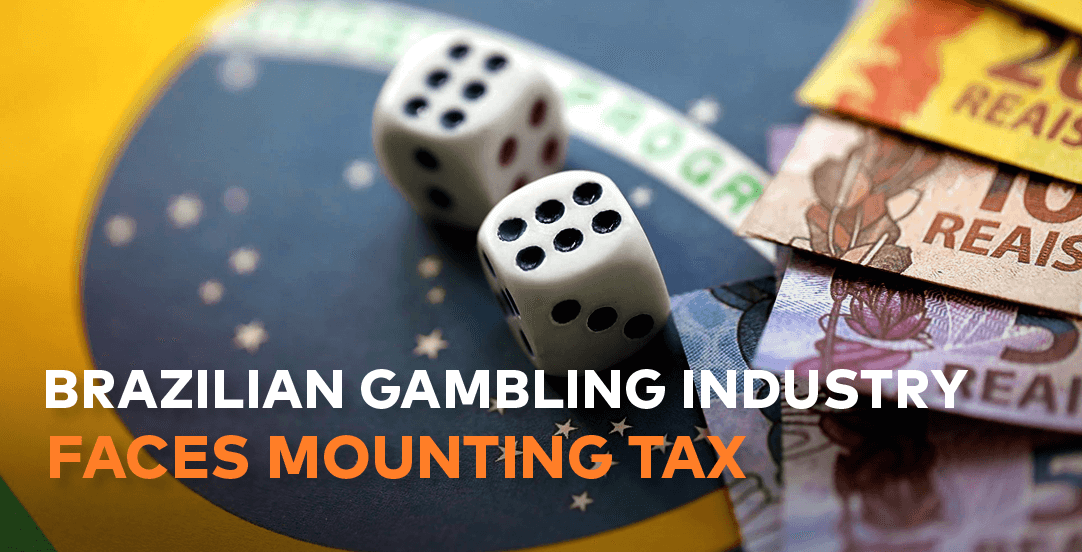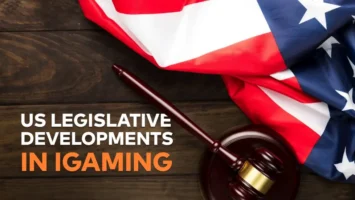Brazilian gambling industry faces mounting tax and ad pressures

The start of 2025 has brought heightened tension to Brazil’s newly regulated gambling sector, as both advertising and taxation policies come under heavier fire. Brazilian gambling industry tax concerns are now front and center in a fight that could determine the very survival—and future direction—of the market. Recent moves by lawmakers to raise taxes and restrict advertising have united previously fragmented industry voices, with trade associations issuing joint warnings about the risks of overregulation and excessive fiscal demand.
How regulation has put pressure on Brazil’s legal market
Since Brazil’s online betting market officially opened its doors on January 1, operators have navigated a complex regulatory environment. New entrants have made significant investments in compliance, licensing, and local operations—often drawn by the promise of Latin America’s biggest gaming opportunity. Yet, just months into legal operations, operators find themselves the target of multiple legislative challenges that threaten to undo these initial gains.
Over the past weeks, the Senate’s approval of Bill 2,985/2023 has put forward a new wave of advertising restrictions. While the most extreme measures—a blanket ad ban—were averted, the legislation still proposes a significant clampdown on betting promotions, especially on live sports broadcasts and celebrity endorsements. Meanwhile, the government is mulling a gradual overhaul of the tax regime that could push the effective gross revenue tax close to—or even above—50%, before accounting for corporate profit taxes and steep regulatory fees.
Tax burden reaches breaking point
The sheer scale of the current and proposed fiscal obligations has left the industry reeling. At present, regulated operators shoulder a 12% gaming tax on gross revenue, an additional 9.25% in federal social contributions (PIS and COFINS), municipal taxes of up to 5%, and a corporate tax regime that brings total profit taxation to 34%. A monthly inspection fee, which can approach R$2 million per operator, further squeezes margins.
With a new framework set to replace the PIS/COFINS and ISS structure with a dual tax on goods and services (CBS and IBS), industry estimates now point to a potential jump of 13% in tax burden on gross revenue. Add to this the recently legislated Selective Tax targeting gambling activity, whose final rate is still undetermined, and the total tax pressure could soon approach half of operators’ gross income.
In response, six of Brazil’s largest gaming associations, including the influential Brazilian Institute of Responsible Gaming (IBJR) and the National Association of Games and Lotteries (ANJL), issued a rare joint statement warning that further tax hikes could destroy the sector’s viability. “In this scenario,” the statement reads, “it is unjustifiable—from any technical, economic or public policy perspective—to impose new tax burdens on a sector that is already extremely burdened and contributes significantly and responsibly to the country.”
Potential consequences of over-taxation
The alarm sounded by the associations isn’t theoretical. Industry data shows that, during Q1 2025, the regulated market processed approximately BRL3.1 billion monthly, while the illegal market—still thriving, despite new regulation—was estimated at between BRL6.5 and BRL7 billion monthly. This vast shadow market, completely beyond the control of regulators and unburdened by legal obligations, poses a direct threat to both consumer safety and government revenue goals.
History and international experience reinforce the dangers of imposing excessive fiscal pressure on a fledgling sector. Excessive regulations have already driven legal operators out of once-promising markets like Italy and Spain, only to see government revenues shrink and illicit activity balloon. The Brazilian associations have cited these global lessons, pointing to the risk of “irreversible setbacks” if policy does not strike the right balance.
Advertising restrictions add to the pressure
While tax is the loudest point of contention, new regulations proposed for gambling advertising are compounding industry anxieties. Although a complete ban was removed from the Senate bill, the approved version still imposes a ban on betting ads during live sporting broadcasts and outlaws the use of influencers, celebrities, and athletes who are still active—or who retired within the past five years—in all forms of gambling promotions.
Some stakeholders welcome responsible advertising rules. For instance, the SPA (Secretariat of Prizes and Bets) has already mandated “18+” logos and socially responsible messaging, and several lawyers and operators believe current constraints to be proportionate for an emerging market. Legal counsel Luiz Felipe Maia argues that allowing regulated operators visibility is crucial to steer customers away from black markets and into the legal ecosystem. “It’s important that we don’t have that many restrictions, such as in more mature markets,” he explains. “Allowing regulated operators to be known to the public helps drive players toward safer options.”
Enforcement, rather than further restriction, is widely seen as the priority. A series of scandals in 2024 involving influencer marketing—from widely publicized promotions of unlicensed games resulting in public loss and legal repercussions—highlighted the need for clear, enforceable rules. The SPA has since tightened requirements, even subjecting major influencers to congressional scrutiny over their promotional activities.
Growing risk of black market resurgence
Industry leaders and legal experts are nearly unanimous in their worry that pushing the regulated sector too hard—either through excessive taxes or overly harsh ad limits—will benefit only one group: unlicensed, offshore operators. “Advertising is one of the few public-facing tools we have to demonstrate that we operate legally,” argues Fernando Garita, CEO of Betsul.
Without this visibility, consumers may struggle to distinguish trustworthy brands from fly-by-night operations or fraudulent offshore sites. The associations point out that in Sweden and elsewhere, even informative ad campaigns have not fully overcome the confusion in markets where legal and illegal brands intermingle. Blanket ad bans could, paradoxically, worsen the issue by removing all visible cues that would channel players towards safe, regulated platforms.
Why public perception remains a flashpoint
Much of the drive toward restrictive legislation is rooted in longstanding anti-gambling sentiment in Brazilian politics—often disconnected from evolving public opinion. The Supreme Federal Court, for instance, took up challenges to the legitimacy of betting laws following accusations from unions that legal gambling would encourage addiction and ruin families. Yet, a government-funded poll by DataSenado in April 2025 found that 60% of respondents now favor legalizing land-based gambling—a major turnaround after decades of prohibitionist policy.
Some legal experts, such as Felipe Maia, maintain that political “echo chambers” among certain lawmakers—not actual popular sentiment—are driving regulatory overreactions. After nearly 80 years of prohibition, there remains a cultural knowledge gap about the legitimate sector and its potential social contributions. According to EstrelaBet’s Fellipe Fraga, the sector has a long way to go in educating both officials and the broader public about its role, obligations, and potential benefits.
Industry unity remains a challenge—and an opportunity
One internal hurdle to robust advocacy has been the industry’s traditionally fragmented representation. With at least five major trade bodies, lawmakers have struggled to find a unified counterpart for policy dialogue. “What they say is it’s very hard to deal with this industry, because they get different inputs from different associations and then they don’t know who to trust,” Maia notes.
Unity is now emerging as a survival strategy. The unprecedented joint statements by six key trade associations represent a strategic shift, demonstrating the industry’s growing recognition that only coordinated, collective action will provide meaningful leverage in future regulatory debates.
Self-regulation is also on the table: by proactively demonstrating social responsibility and a willingness to police bad actors, the sector may forestall even more damaging forms of government intervention. “Self-regulation shows social responsibility, maturity,” says Maia. “And it allows you to come up with solutions that work for the industry before someone comes with an idea that will not work.”
What’s next for gambling policy in Brazil?
With legislative deadlines looming and further extensions under discussion, the immediate future for regulated iGaming in Brazil is marked by uncertainty. Senior lawmakers have openly questioned whether the sector is becoming a mere tool for deficit reduction, rather than a partner in building a sustainable and transparent industry. Meanwhile, advocates for the sector are urging a pragmatic, evidence-led approach—one that recognizes the social risks of gambling but balances these against the dangers of driving activity underground.
One potential bright spot is the prospect of broader legalization—including land-based casinos—which could bring new revenues and allow for a more nuanced structure of market segmentation and taxation. However, timing remains unclear, and for now, the focus remains squarely on protecting the viability of online operations in the face of mounting costs and shrinking margins.




















